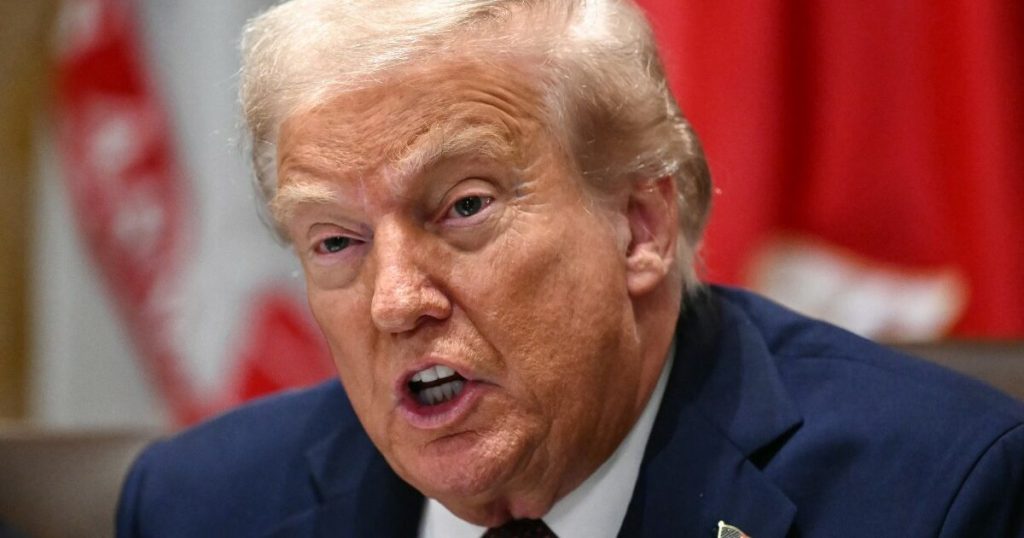President Donald Trump’s trade policies, characterized by the extensive use of tariffs, have been a defining feature of his presidency, sparking controversy and legal challenges both domestically and internationally. His administration’s justification for these tariffs rests largely on the International Emergency Economic Powers Act (IEEPA), a law granting the president broad authority to regulate commerce during periods of declared national emergency. This legal basis has been the subject of intense scrutiny, culminating in a significant ruling by the US Court of Appeals for the Federal Circuit, which found that President Trump’s invocation of IEEPA to impose widespread tariffs exceeded his presidential authority. This decision has prompted an urgent appeal to the Supreme Court, with the administration emphasizing the need for a swift resolution to maintain stability in global trade and preserve the United States’ negotiating position.
The core issue at stake revolves around the interpretation and scope of IEEPA. President Trump has employed this act to justify tariffs on a wide range of goods from numerous countries, citing justifications ranging from unfair trade practices to national security concerns and the influx of illegal drugs. The lower court’s ruling, however, challenged the administration’s expansive interpretation of IEEPA, asserting that the president’s actions overstepped the boundaries of the law. This decision has significant implications for the ongoing trade disputes and negotiations involving the United States, potentially undermining agreements reached with trading partners and jeopardizing billions of dollars in collected tariffs. The situation underscores the ongoing tension between presidential authority in trade matters and the role of the judiciary in interpreting and enforcing legal limits on that power.
The Trump administration’s petition to the Supreme Court highlights the perceived urgency and importance of the case. The solicitor general’s request for expedited consideration, including oral arguments by early November, reflects the administration’s concern about the potential ramifications of the lower court’s decision. The administration argues that the ruling undermines the president’s ability to effectively negotiate trade agreements and defend American economic interests. Furthermore, the Treasury Secretary’s declaration emphasizes the loss of “substantial negotiating leverage,” suggesting that the uncertainty surrounding the legality of the tariffs weakens the United States’ position in ongoing trade discussions. The administration contends that a rapid resolution from the Supreme Court is essential to restore clarity and stability to the international trade landscape.
The implications of the Supreme Court’s eventual decision are far-reaching. A ruling upholding the lower court’s judgment would not only invalidate the tariffs imposed under IEEPA but also potentially create a precedent limiting the president’s use of emergency powers in trade matters. This could have a profound impact on future trade policy and the balance of power between the executive and judicial branches in this area. Conversely, a decision in favor of the Trump administration would affirm the president’s broader interpretation of IEEPA, granting greater latitude in imposing tariffs and potentially emboldening the use of similar measures in the future. The court’s decision will undoubtedly shape the trajectory of US trade policy for years to come.
The legal battle over President Trump’s tariffs reflects a broader debate about the appropriate role of executive power in international trade. Critics argue that the administration’s expansive use of tariffs and its reliance on IEEPA represent an overreach of presidential authority, circumventing established trade negotiation processes and undermining the rule of law. They contend that such actions disrupt global markets, harm American businesses and consumers, and strain relationships with key trading partners. Supporters, on the other hand, maintain that the president’s actions are necessary to address unfair trade practices, protect national security interests, and promote American economic prosperity. They argue that the president has the constitutional authority to take decisive action in trade matters, particularly when faced with perceived threats to national security or economic well-being.
The Supreme Court’s decision in this case will have significant ramifications beyond the immediate legal dispute. It will shape the future of US trade policy, influencing the president’s ability to use tariffs as a negotiating tool and potentially affecting the balance of power between the executive and judicial branches in matters of international trade. The decision will also send a powerful message to the international community about the United States’ commitment to established trade rules and norms. The outcome will be closely watched by businesses, governments, and international organizations around the world, as it will have profound implications for the global trading system and the future of international economic relations.


